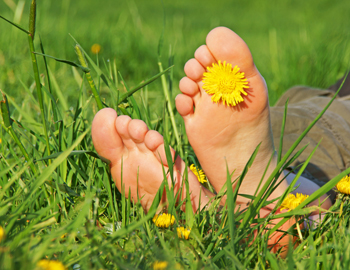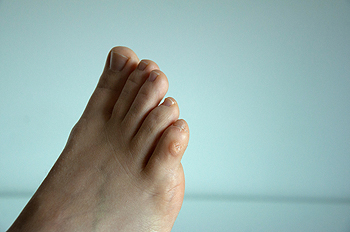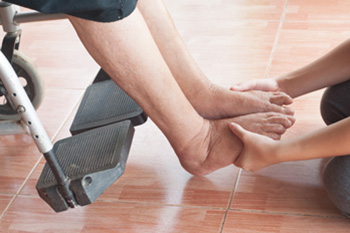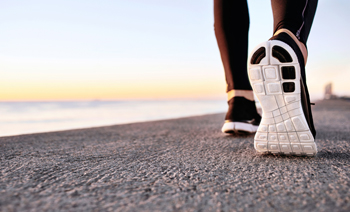
A condition known as eccrine bromhidrosis causes the feet to become extremely odorous. This condition occurs when sweat from the many eccrine glands on your feet softens the keratin on your skin. This results in the breakdown of the skin and creates a moist environment that fosters the growth of bacteria. As the bacteria flourish, they release chemicals that cause a stench. Obesity, diabetes, certain medications, and genetics may also play a role. A few ways to curb bacterial growth are keeping your feet clean and dry, wearing moisture wicking socks, and giving your shoes a day to air out before wearing them again. If your symptoms continue or worsen, it may be time to see a podiatrist who can offer more advanced treatment for eccrine bromhidrosis of the feet.
Everyday foot care is very important to prevent infection and other foot ailments. If you need your feet checked, contact one of our podiatrists from Biebel & DeCotiis Podiatry Associates. Our doctors can provide the care you need to keep you pain-free and on your feet.
Everyday Foot Care
Often, people take care of their bodies, face and hair more so than they do for their feet. But the feet are a very important aspect of our bodies, and one that we should pay more attention to. Without our feet, we would not be able to perform most daily tasks.
It is best to check your feet regularly to make sure there are no new bruises or cuts that you may not have noticed before. For dry feet, moisturizer can easily be a remedy and can be applied as often as necessary to the affected areas. Wearing shoes that fit well can also help you maintain good foot health, as well as making it easier to walk and do daily activities without the stress or pain of ill-fitting shoes, high heels, or even flip flops. Wearing clean socks with closed shoes is important to ensure that sweat and bacteria do not accumulate within the shoe. Clean socks help to prevent Athlete’s foot, fungi problems, bad odors, and can absorb sweat.
If you have any questions please feel free to contact one of our offices located in Holmdel and Middletown, NJ . We offer the newest diagnostic and treatment technologies for all your foot and ankle needs.




